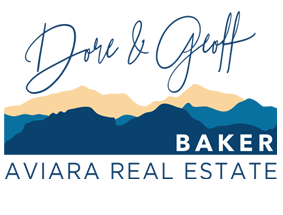Closing costs typically are approximately 4% of Sales Price.
The following fees and services comprise the closing costs on a property:
- Appraisal Fee
- Loan Fee, Credit Report
- Recording Fees
- Proration of Property Taxes
- Property Inspections
- Reserve Account Setups … Taxes, Insurance, HOA Dues
- Title Insurance for Lender
- Escrow Fee
- Preparation Fees for Processing, Underwriting, and Lender Documents
- Pre-Paid Interest (This applies if you don’t close escrow at the end of a month)
- Mortgage Insurance Premium – (if down payment is less than 20%)
- One Year’s Hazard Insurance Premium and One Year’s Flood Insurance Premium (if applicable)
Your lender should be able to provide you with a detailed list of the specific costs of these items once you decide on a home price. That list is called a Good Faith Estimate of Costs.
WHAT IS AN IMPOUND ACCOUNT?
An impound account is a neutral depository for funds that will be used to pay expenses incurred by the property, such as taxes, assessments, property insurance, or mortgage insurance premiums which fall due in the future. You will pay one-twelfth of the annual amount of these bills each month with your regular mortgage payment. When the bills come due they are paid by the lender from the special account. At closing, it may be necessary to pay enough into the account to cover these amounts for several months so that funds will be available to pay the bills as they come due. You may also be required to refund items prepaid by the seller. For example, if the seller has paid the special assessments or taxes for that year, you may be required to refund the value of the months remaining in the year when you take possession of the property. An escrow fee is usually charged to set up the account
The following links will provide valuable information on the home buying process:
- PRE-APPROVAL VS. PRE-QUALIFICATION – Pre-approval involves a comprehensive review of your financial background by a lender, while pre-qualification is a preliminary assessment based on basic information provided by you.
- PROPERTY TAXES – Property taxes are assessed by local governments based on the value of a property and are used to fund public services such as schools, roads, and emergency services.
- BUYER DO’S AND DON’TS – Advice for buyers on getting pre-approved for a mortgage, researching neighborhoods thoroughly, and more, while covering things to avoid, such as making major purchases before closing and skipping the home inspection.
- CONSIDER YOUR BUYING OPTIONS – When considering your buying options, Dore and Geoff Baker encourage you to explore different neighborhoods and property types to find the best fit for your needs, ensuring you make a well-informed decision.
- MAKING AN OFFER – When it comes to making an offer on a home, Dore and Geoff Baker advise careful consideration and strategic planning to ensure you present a compelling offer that aligns with your budget and goals.
- KEY CONCEPTS – Understanding the key concepts in making an offer on a home, including earnest money, escrow, contingencies, and title insurance, is crucial for a smooth and successful real estate transaction.
- DISCLOSURE & DISCOVERY – Disclosure and Discovery rules ensure that buyers are fully informed about the property’s condition and any potential issues before completing the purchase.
- HOME INSPECTION – Home inspection is a crucial step in making an offer on a home, providing buyers with a detailed assessment of the property’s condition to make an informed decision.
- CLOSING ON YOUR NEW HOME – The final step in the home buying process, where ownership is transferred from the seller to the buyer, and all remaining paperwork and payments are completed.
- BUYER’S ESCROW PLANNING TIMELINE – Use this chart to draft your buyer’s escrow planning timeline, ensuring you stay on track and meet key deadlines throughout the home buying process.

